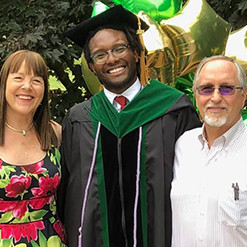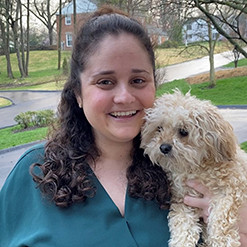Doctors dedicate their lives to healing others, often working under immense pressure and facing emotionally taxing situations daily. They witness human suffering, manage life-and-death scenarios, and carry the weight of responsibility for their patients’ well-being. However, behind the white coats and stethoscopes, doctors are human beings who experience the full spectrum of human emotions, including vulnerability to mental health challenges. In fact, the demanding nature of their profession can make them even more susceptible to conditions like depression, anxiety, and burnout. Understanding and addressing Doctors Mental Health is not just a matter of individual well-being; it’s crucial for the sustainability of the healthcare system and the quality of patient care.
Studies reveal alarming statistics about the mental health of physicians. A meta-analysis highlighted a significant depression rate of 29% among medical residents, far exceeding the 8% rate in the general nonphysician population. Tragically, physicians are also at higher risk of suicide, dying by suicide at twice the rate compared to the general population. The COVID-19 pandemic further exacerbated these issues, with a staggering 87% of emergency physicians reporting increased stress levels in 2020. Despite this, nearly half (45%) felt uncomfortable seeking help, highlighting a significant barrier to care within the medical profession: stigma.
This reluctance to seek help is fueled by various factors, including concerns about professional licensing, fear of career repercussions, and a deeply ingrained culture that often equates vulnerability with weakness. Many doctors worry that admitting to mental health struggles will be perceived as a professional failing, hindering their career progression and damaging their reputation. However, experts emphasize that seeking mental health care is not a sign of weakness, but rather an act of strength and self-awareness. Furthermore, addressing their own mental health actually empowers doctors to become better caregivers, enhancing their empathy, resilience, and overall effectiveness. Openly discussing mental health challenges within the medical community is vital to dismantling stigma and fostering a culture of support and help-seeking.
Dr. Darrell Kirch, president emeritus of the AAMC and co-chair of the National Academy of Medicine (NAM) Action Collaborative on Clinician Well-Being and Resilience, powerfully states, “Stigma can cost lives, and sharing our personal struggles can help save them.” To shed light on this crucial issue and inspire others to seek support, AAMCNews interviewed four physicians who bravely shared their personal mental health journeys. Their stories, encompassing experiences with depression, sexual abuse, substance use, and suicidal ideation, are testaments to the challenges faced by doctors. More importantly, they are stories of healing, resilience, and unwavering dedication to providing compassionate, high-quality patient care.
Childhood Trauma and the Long Road to Healing
 AAMC President Emeritus Darrell Kirch, MD, finds that enjoying nature and traveling help boost his mood.
AAMC President Emeritus Darrell Kirch, MD, finds that enjoying nature and traveling help boost his mood.
{width=247 height=247}
Dr. Darrell Kirch’s journey into medicine was shaped by both a profound desire to help others and the weight of early life traumas. At the young age of 20, while working in the Rocky Mountains, Kirch witnessed a devastating plane crash that claimed 31 lives. The graphic nature of the accident and the immediate aftermath left an indelible mark. In today’s context, a psychological debriefing would be standard protocol after such a traumatic event. However, reflecting on the incident, Dr. Kirch, now 73, notes the stark contrast: “Back then, this happened on a Friday, and I just went back to work on Monday.”
This plane crash, though impactful, was not the first trauma Dr. Kirch endured. He bravely shares the painful reality of experiencing sexual abuse as a young child at the hands of a trusted adult. This deeply personal revelation, which Dr. Kirch admits is “very uncomfortable” to discuss, is shared with the hope of helping others who may be suffering in silence. He believes that this abuse, combined with genetic predispositions, contributed to his subsequent mental health challenges. In his youth, Dr. Kirch channeled his energy into academic achievements as a coping mechanism. His genuine desire to make a difference led him to medical school at the University of Colorado School of Medicine in 1973, a prospect that initially filled him with excitement.
However, medical school presented unexpected challenges. During anatomy class, the sight of cadavers triggered intense anxiety, reminiscent of the plane crash victims. Dr. Kirch experienced debilitating symptoms, including heart palpitations and hyperventilation, leading him to believe he was facing a life-threatening situation. Desperate and overwhelmed, he approached a medical school dean, intending to withdraw from his studies. Instead of accepting his resignation, the dean wisely encouraged him to seek psychiatric care. Feeling he had no other option, Dr. Kirch agreed, a decision that would prove to be transformative. “I was desperate,” he recalls, highlighting the pivotal moment when he prioritized his mental health.
“I began to feel like I had to be more forthcoming. I felt that revealing personal stories was the only antidote to stigma.”
Therapy and medication became crucial components of Dr. Kirch’s journey to healing and a successful career. He went on to achieve significant milestones, including serving as dean at two medical schools and co-chairing the NAM’s Action Collaborative on Clinician Well-Being and Resilience. Even today, he acknowledges the ongoing benefit of “medications and trauma-focused psychotherapy.” For much of his career, Dr. Kirch maintained silence about his personal struggles. However, his involvement with the NAM Collaborative prompted a shift in perspective. “I began to feel like I had to be more forthcoming,” he explains. “I felt that revealing personal stories was the only antidote to stigma.”
Dr. Kirch now expresses regret for not speaking out sooner, particularly during his time in leadership positions when learner suicides occurred under his watch. “I was in a leadership position, but I didn’t show leadership on this front,” he reflects. Despite these regrets, he is deeply grateful for the opportunity to make a positive impact now. The openness with which Dr. Kirch now shares his story has resonated deeply with many. “People often tell me … that to have somebody like me be so open was enormously helpful,” he shares. He finds particular gratification in hearing from learners who are inspired to seek help and persevere in their medical careers, knowing they have long and promising futures ahead.
A Surgeon’s Courageous Step Forward: Battling Depression and Substance Use
 Carrie Cunningham, MD, before her personally revealing remarks at the Association for Academic Surgery conference in February.
Carrie Cunningham, MD, before her personally revealing remarks at the Association for Academic Surgery conference in February.
{width=247 height=247}
Dr. Carrie Cunningham, a highly accomplished surgeon and academic, made a courageous decision to break her silence about her own mental health struggles. Addressing 2,000 colleagues at the Association for Academic Surgery (AAS) conference in February 2023, her opening words, “This is terrifying,” underscored the vulnerability and bravery of her act. As she concluded her presidential address for the AAS, Dr. Cunningham revealed her decades-long battle with depression and anxiety, as well as a recent diagnosis of a substance use disorder. This public disclosure marked a turning point, both personally and professionally.
“I know that giving this address today will change my career path,” Dr. Cunningham, an associate professor at Harvard School of Medicine, acknowledged. She anticipated potential negative perceptions, stating, “There will be people who see me as weak, emotional, and damaged.” However, her commitment to helping others outweighed these concerns. Tears welling, she declared, “If I can prevent one of you … from dying by suicide or suffering alone, it will be worth it.” Dr. Cunningham’s powerful words resonated deeply within the audience, sparking a vital conversation about doctors mental health within the surgical community.
Dr. Cunningham, now 50, has always been driven and high-achieving. As a teenager, she excelled as a world-class tennis professional, competing at Wimbledon five times. However, beneath the surface of success, she began experiencing depression at the age of 17. This depression recurred throughout her life, particularly during the demanding years of surgical residency. Despite these challenges, Dr. Cunningham persevered, driven by her own strength and resilience. “I’m one of the toughest people I know, so I figured I could handle this,” she explained, reflecting on her initial approach to mental health.
The suicide of a close friend and fellow surgical resident in 2012 served as a catalyst for Dr. Cunningham to finally seek professional help. Prescribed antidepressants, she experienced significant relief. “It was like a huge weight lifted,” she described. The medication proved effective for several years, until a major life event – the end of her marriage in 2021 – triggered a relapse. After decades of being known as “Dr. Lubitz,” she reverted to her maiden name following the divorce, marking a period of significant personal change and emotional vulnerability. This period initiated a year-long downward spiral into depression.
“I know that … there will be people who see me as weak, emotional, and damaged.”
Dr. Cunningham began to rely more heavily on alcohol to cope. An incident at a colleague’s party, where she was visibly intoxicated, prompted her friends to intervene. They approached her boss, an action that initially provoked anger in Dr. Cunningham. “I was livid,” she admits. However, this intervention proved to be the crucial first step in her healing journey. With the support of her department leadership at Mass General Hospital, Dr. Cunningham connected with her state’s physician health program (PHP). PHPs offer confidential assessment and resources for healthcare providers seeking mental health treatment, providing a safe and supportive avenue for help-seeking.
Following in-depth psychiatric testing through the PHP, Dr. Cunningham faced a difficult assessment: “The assessment team is of the opinion that Dr. Lubitz is currently not fit to practice medicine.” This stark statement led her to voluntarily undergo three months of intensive treatment. As part of her ongoing recovery, Dr. Cunningham continues to take a breathalyzer test three times daily and attends therapy and support group sessions weekly. Crucially, seeking help through the PHP did not negatively impact her medical license. After being cleared by the PHP, she successfully returned to her medical practice.
“I’m the best I’ve ever been in my life, and I’m grateful to my friends for helping me get treatment,” Dr. Cunningham affirms. Throughout her journey, she has learned valuable lessons, embracing the powerful concept that “self-care is a professional responsibility.” In the aftermath of her AAS address, colleagues approached Dr. Cunningham, asking how they could offer support. Her request was simple yet profound: “Help each other.” This call to action underscores the importance of community and mutual support in addressing doctors mental health.
Stepping Back from the Brink: Overcoming Suicidal Thoughts in Medical School
 Christopher Veal, MD, at his 2021 medical school graduation with his godparents, who helped him through his darkest time.
Christopher Veal, MD, at his 2021 medical school graduation with his godparents, who helped him through his darkest time.
{width=247 height=247}
Dr. Christopher Veal’s journey through medical school took a harrowing turn when he found himself contemplating suicide. As a second-year medical student at the University of Vermont Larner College of Medicine, he formulated a plan to end his life, intending to stage a car accident to spare his family the pain of knowing it was suicide. The weight of academic pressure and fear of failure had become unbearable. This crisis point was triggered by a difficult conversation with a medical school dean after failing a required remediation course.
Dr. Veal’s deepest fear was the prospect of leaving medical school, believing it would bring shame upon his family and potentially hinder future opportunities for other young Black individuals aspiring to careers in medicine. “I was in such pain, I just wanted it to end,” recalls Dr. Veal, now a family medicine resident at Carle Foundation Hospital in Urbana, Illinois. However, on that pivotal stormy night in 2018, instead of carrying out his plan, Dr. Veal made a life-saving phone call. He reached out to his godmother, a physician who had tragically lost her own son to suicide. “She refused to hang up until I got home safely,” he recounts. That night marked the beginning of his journey back from the brink, as they decided together that he would take a medical leave of absence.
During his leave, Dr. Veal engaged in cognitive behavioral therapy (CBT), a therapeutic approach that helped him challenge and reshape his negative thought patterns. After four months of intensive therapy, he felt ready to return to medical school, equipped with new coping mechanisms and a renewed sense of hope. Looking back, Dr. Veal recognizes a confluence of factors that contributed to his suicidal ideation. As the only Black man in his class, he experienced profound feelings of isolation. Coming out as gay had also created a rift with some family members, adding to his sense of disconnection. Furthermore, undiagnosed and untreated ADHD made the already demanding transition to medical school even more challenging.
Dr. Veal also had a history of untreated depression, rooted in cultural stigma. “Where I was raised, therapy was for White people,” he explains, highlighting the misconception that mental health care is not for everyone. “You were supposed to just push through the pain.” The intense fear of failure also played a significant role in his mental health crisis. “I grew up in an environment where failure can have dramatic consequences, like not being able to pay your rent or buy food,” he shares, illustrating the high stakes he felt were attached to his academic performance.
“We need to recognize that vulnerabilities can make us more compassionate, and that compassion can help us improve the lives of our patients.”
Two years later, another pivotal moment occurred when a fellow student died by suicide. This tragedy prompted Dr. Veal to break his silence and address the pervasive issue of doctors mental health within the medical school environment. He began to openly inquire about student well-being and discovered that many others were experiencing intense stress and emotional burdens. “It was a shared burden that no one was talking about,” he realized. Inspired to create change, Dr. Veal shared his personal story in a powerful Academic Medicine essay. Since its publication, he has been contacted by numerous students who have found solace and hope in his words, particularly when they were struggling with their own mental health.
Dr. Veal’s journey has illuminated the prevailing culture within medicine, where “vulnerabilities are considered liabilities.” He now advocates for a paradigm shift, urging leaders and learners to embrace a new perspective that recognizes vulnerability as a source of strength and compassion. “We need to recognize that vulnerabilities can make us more compassionate, and that compassion can help us improve the lives of our patients,” he emphasizes. By sharing his story, Dr. Veal is contributing to a growing movement to destigmatize mental health challenges in medicine and foster a more supportive and understanding environment for future generations of doctors.
Caring for the Carers: Recognizing and Addressing Burnout
 Jessi Gold, MD, with her dog Winnie, who provides lots of emotional support.
Jessi Gold, MD, with her dog Winnie, who provides lots of emotional support.
{width=247 height=247}
Dr. Jessi Gold, a psychiatrist specializing in physician mental health, has firsthand experience with the pressures and vulnerabilities inherent in the medical profession. Throughout her academic career, she consistently achieved top marks, never receiving a grade lower than an A. However, as an undergraduate at the University of Pennsylvania, the rigorous premed coursework presented an unprecedented academic challenge. “Getting a B was really hard for me, and people were saying you couldn’t get a B and continue on the path [to medicine],” recalls Dr. Gold, now an assistant professor of psychiatry at the Washington University School of Medicine in St. Louis.
This academic pressure triggered a significant shift in Dr. Gold’s well-being. The typically extroverted and engaged student began withdrawing, skipping classes, spending excessive time alone in her room, and experiencing changes in her eating and sleeping patterns – classic signs of depression. Like many of her patients today, who are predominantly doctors themselves, Dr. Gold initially believed she could manage her struggles independently. However, as her depressed mood intensified and she became concerned about its potential impact on her grades, she recognized the need to seek help. Dr. Gold reached out to the school clinic, hoping to access mental health services.
Disappointingly, her initial attempt to seek help was met with invalidation. “They told me I wasn’t sick enough to get care there,” she recounts. Despite this setback, Dr. Gold persisted and finally accessed treatment during summer break, beginning regular therapy sessions and starting antidepressants. She has continued this care ever since, recognizing its ongoing value in maintaining her well-being. “I am so grateful for this care. Life can get hard, and this helps me get through it more easily,” she affirms. This proactive approach to her own mental health underscores her commitment to self-care and her understanding of its importance, particularly in high-stress professions.
The COVID-19 pandemic brought unprecedented challenges to healthcare professionals, and Dr. Gold was no exception. She began experiencing burnout, a state of emotional, physical, and mental exhaustion caused by prolonged or excessive stress. “I couldn’t stay awake after work, and I wasn’t answering texts or calls from friends,” she describes. She also noticed an amplified emotional reactivity, experiencing disproportionate anger in response to routine work demands like emails and presentation requests. “I felt I had nothing left to give,” she explains, highlighting the profound depletion associated with burnout.
“I am so grateful for this care. Life can get hard, and this helps me get through it more easily.”
To address her burnout and proactively manage her mental health, Dr. Gold implemented several strategies. She began diligently monitoring her mood, using journaling as a tool for self-reflection and emotional processing. She also incorporated specific rituals into her daily routine to create a sense of closure at the end of the workday, preventing work-related stress from spilling over into her personal life. Dr. Gold has been remarkably open about various aspects of her mental health journey, sharing her experiences on social media and in popular media outlets. This public advocacy contributes significantly to destigmatizing doctors mental health and encouraging help-seeking behaviors within the medical community.
However, for a period, Dr. Gold maintained silence about one crucial aspect of her mental health care: medication. Even in 2020, when many healthcare providers were openly discussing their medication use on Twitter, she shared only about her therapy experiences. Reflecting on this, Dr. Gold questioned her own reticence. “I realized that although I believed to my core what I told patients about medication, I had internalized a message that my taking medication meant a greater degree of illness,” she explains. This realization prompted her to expand her openness and include medication in her public discussions about mental health. “I needed to tell [about medication] because I could see how far we have to go if someone like me who you’d think would be comfortable with this, is not,” she states, underscoring the deeply ingrained stigma surrounding mental health medication, even among mental health professionals.
Dr. Gold acknowledges that sharing personal mental health details is not easy, but emphasizes that even small shifts in cultural norms can create significant positive change. Simple acts of empathy and open communication can make a profound difference. “We can just say to someone, ‘Today was hard for me. What was it like for you?’” she suggests, advocating for a culture of mutual support and vulnerability within the medical profession. By prioritizing doctors mental health and fostering open conversations, the medical community can create a healthier and more sustainable environment for both providers and patients.

